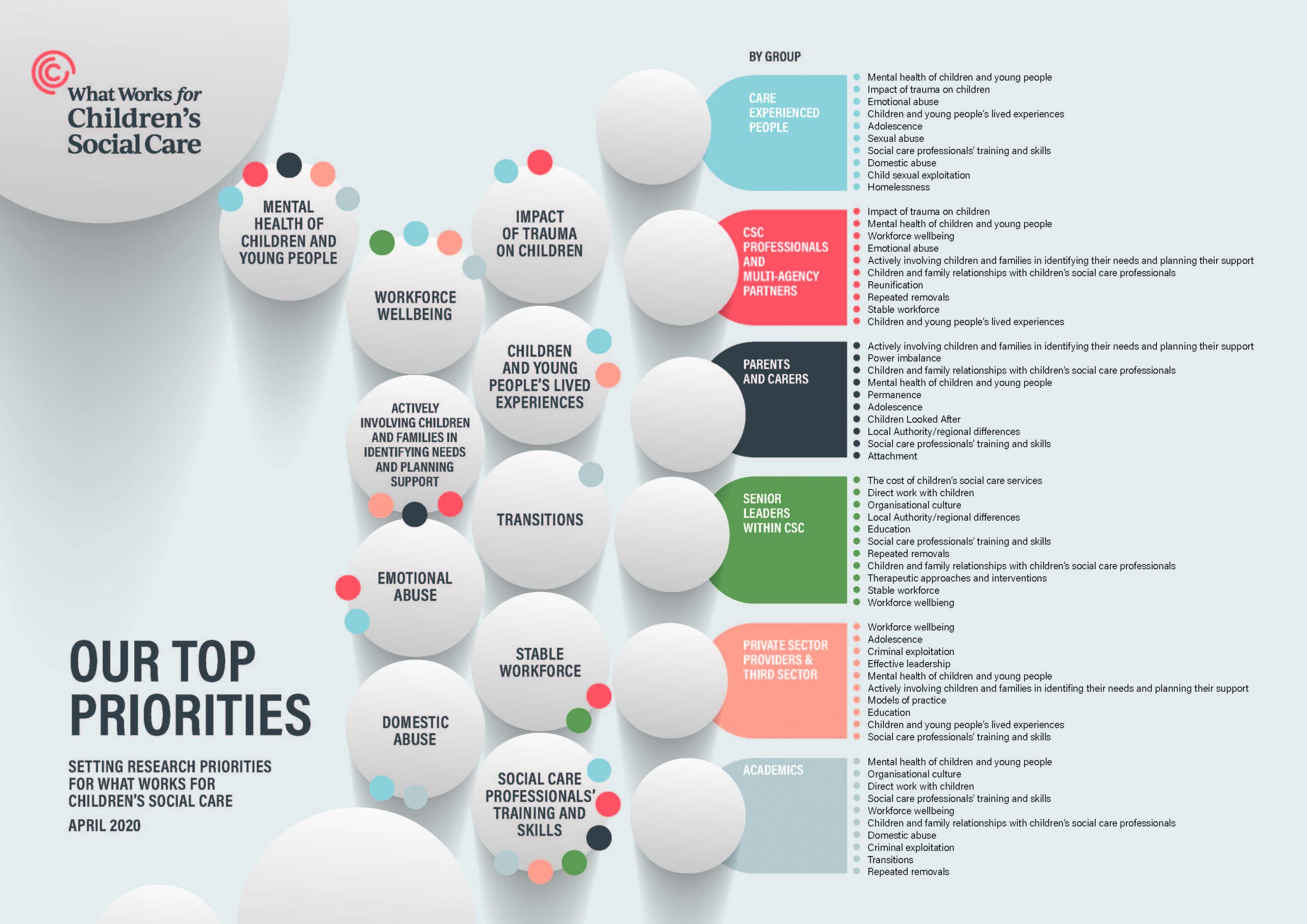Research Priorities

Children’s social care (CSC) is complex and wide-reaching, working with families from the point of referral through to permanence, and including
adoption, care-leaver support and targeted early help. Numerous professionals are involved, from social workers and senior decision makers in CSC, to private providers and the third sector, to multi-agency partners including teachers, police and health professionals, plus many others. Every
family comes with a different set of experiences and needs. This results in a plethora of different perspectives and views on where research is most needed and where it’s not.
Whilst our ambition is to improve evidence in children’s social care across the board, we recognise that it is not sensible – or possible – to approach this from every angle at once. Instead, we set out to establish a core set of research priorities, which highlight the topics considered most important by those closest to it, with the hope that this ensures that the evidence we produce next is as useful and impactful as possible.
What Works for Children’s Social Care (WWCSC) and the children’s social care sector as a whole is then faced with the challenge of how best to distill the complexity of the sector into a set of research priorities. Given the diversity of views, WWCSC opted to launch a research prioritisation exercise, between January and March of 2020, based on a modified version of the Delphi method (more commonly used for forecasting) . This was designed to help build consensus, whilst also retaining the ‘voice’ of each stakeholder group throughout the process.
The overarching aim of this process was to produce a list of research priorities for the organisation to direct its attention, time, and funding towards.
The Summary Report provides a brief overview of the process and top priorities overall, and by individual group.
The Main Report provides a transparent guide to the process we went through to reach these priorities.
